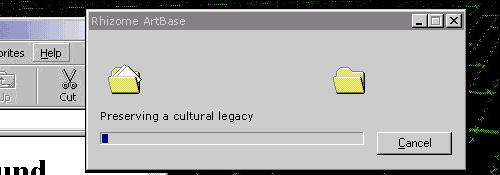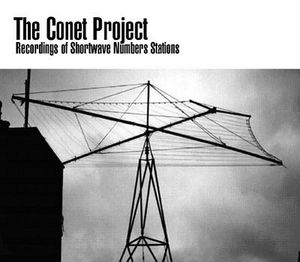User:Dave Young: Difference between revisions
Dave Young (talk | contribs) No edit summary |
Dave Young (talk | contribs) No edit summary |
||
| Line 33: | Line 33: | ||
Radio as a filesharing medium? Send binary as audio. | Radio as a filesharing medium? Send binary as audio. | ||
==Reading List== | |||
Rossiter, Ned - Organized Networks: Media Theory, Creative Labour, New Institutions [from NM Office Lib] | |||
==Curious Places== | ==Curious Places== | ||
Revision as of 11:56, 18 October 2011
Bio
<warning "self-congratulatory and institution-appeasing nonsense designed (but failing) to gain $$$ below.">
Henderson46 works with code/sound/space as a means to investigate the methods with which we experience technology. Influenced by ambient music, minimalism, generative systems, and recursion, Henderson92 develops custom software that contains elements of randomness in order to allow chance to play a part in the creation of the artwork. Disruption of habit and intention is a common theme amongst the works - the computer acts as a provocative agent that encourages the viewer to re-experience a familiar act or phenomenon. Henderson3 was a founding member of The Dodo Collective, an independent arts group that staged a series of exhibitions in disused retail spaces around post-boom Dublin, including collaborations with The Darklight Film Festival and the poet Alan Jude Moore. He is currently based in the Netherlands, working with galleries such as Nederlands Insituut voor Mediakunst NIMk and Stichting TAG as a producer/technician and also with STEIM, the Patching Zone and the Digital Art Lab at the CKC as a workshop director. Henderson[###]'s work has been shown as part of a variety of art festivals, open source congresses, and design exhibitions around Europe.
</warning>
Personal Sites
Site: hendersonSix
Blog: hendersonMedia
Essays
Soon?
Prototyping Updates
Protyping1
Exquisite Corpse > collaborative practive, surrealism, chance and aleatory systems.
Introduction to inkscape.
SVG animations, looking at SVG as a programming language.
Thematic Project 1
Covert Networks
Number stations: Radio networks that broadcast codes, popular theories are that they are used for espionage purposes or for drug smuggling.
One-time pads: indecipherable coding systems for eavesdroppers. Often used to encrypt number station broadcasts.
Automated reel-to-reel tape recorders: timed to play broadcasts at certain times of the day. Occasionally they "fail", and broadcast the code at an incorrect speed, or broadcast the wrong code entirely.
Re-watch: The Conversation by Francis Ford-Coppola - Listening/Paranoia/Cold War/Nixon/Espionage.
Radio as a filesharing medium? Send binary as audio.
Reading List
Rossiter, Ned - Organized Networks: Media Theory, Creative Labour, New Institutions [from NM Office Lib]
Curious Places
Blogs/Sites
http://we-make-money-not-art.com
http://createdigitalmusic.com
http://vagueterrain.net
http://creativeapplications.net
http://interferencejournal.com
Software+Programming
http://en.flossmanuals.net/
http://puredata.info/
http://processing.org/
http://arduino.cc


